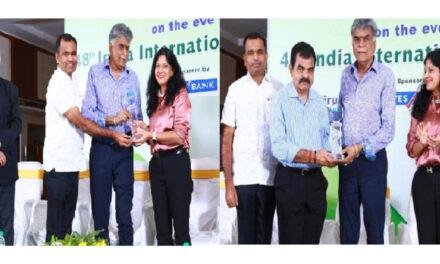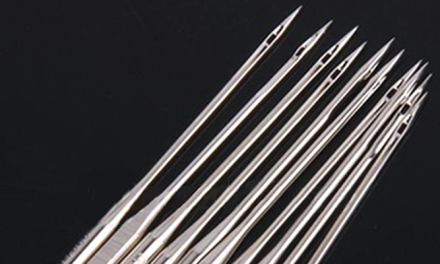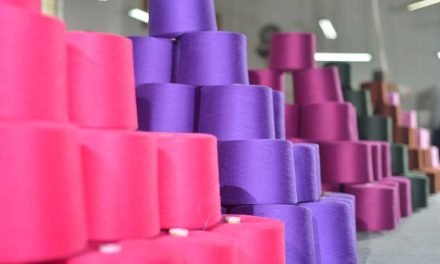 Tiruppur as a cluster has invested in 1,600 MW of wind and solar energy, recycles waste water in processing units, and has zero liquid discharge systems. Use of recycled fibres and fabrics and green initiatives are now being discussed to a great extent among garment exporters in Tiruppur, as overseas brands talk about sustainable product ranges.
Tiruppur as a cluster has invested in 1,600 MW of wind and solar energy, recycles waste water in processing units, and has zero liquid discharge systems. Use of recycled fibres and fabrics and green initiatives are now being discussed to a great extent among garment exporters in Tiruppur, as overseas brands talk about sustainable product ranges.
Sulochana Cotton Spinning Mills in Tiruppur got into PET bottle recycling almost a decade ago. Used and thrown away PET bottles were collected and processed for fibre and this was spun into yarn. The company, which has knitting and garmenting facilities too, is now in the process of adopting a technology that will enable its overseas buyers and customers to trace the raw materials and processes involved in bringing out the product and an assurance that the synthetic yarn is from recycled fibre. Sulochana is getting ready to launch on a commercial scale ‘Polycycle’, a branded process to trace the entire supply chain, from picking the bottles to making of garments from the recycled fibre yarn, through block chain.
Kaushik Krishnakumar, Joint Managing Director of Sulochana, says that garment brands in the United States and the European Union are showing increasing interest in sustainable products, especially for the last two years. The traceability feature that the company will offer its buyers is a value addition to the sustainable garments that they will source. “We have been in touch with buyers and there are all for it. What they want to know is when we will go commercial with the product,” he says. And, on the sustainability part, the company speaks of use of zero water for processing, complete use of renewable energy, etc.
Syndicate Impex, another garment manufacturing firm in Tiruppur, has launched Ecohike, a range of knitwear collections made entirely of fibre from recycled PET bottles and recycled textile fabrics.
A. Kathiresan, one of the Directors at Syndicate, says the company launched sustainable garments six months ago and plans to take it to the Scandinavian countries by the end of this year. “There are several factors in the process of making a garment and in the materials used that make it sustainable. We plan to buy back the used garments of our brand so that we can recycle it. This will ensure that the t-shirts do not go to the land fills,” he says. The uniqueness of Ecohike t-shirts is that each one is made from 12 recycled PET bottles, saves water, emits 70 percent less carbon dioxide during the manufacture process, and 250 grams of landfill is saved, according to the company.
Sulochana and Syndicate are not the only companies in Tiruppur that are investing in sustainability. As apparel brands in the European Union and the US announce plans for sustainable product ranges, suppliers are looking at ways to make their products meet the buyer demand.
The world market is talking of sustainable manufacturing process and products. “Knowingly or unknowingly, Tiruppur has scaled high on this front,” says Raja Shanmugham, president of Tiruppur Exporters’ Association.
Tiruppur as a cluster has invested in 1,600 MW of wind and solar energy, recycles waste water in processing units, and has zero liquid discharge systems. Hence, the cluster itself has sustainability advantage and individual companies are taking it forward through separate initiatives. The Association is trying to bring sustainability brand to the entire cluster. This will also ensure continuous flow of orders to the cluster, he says.





















